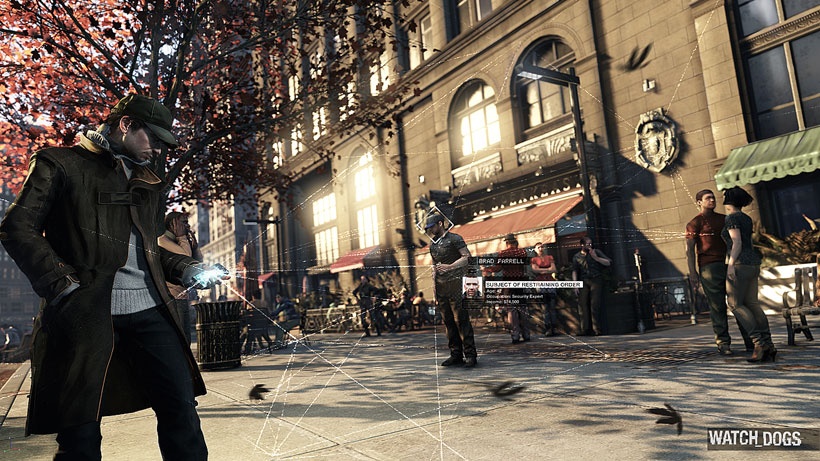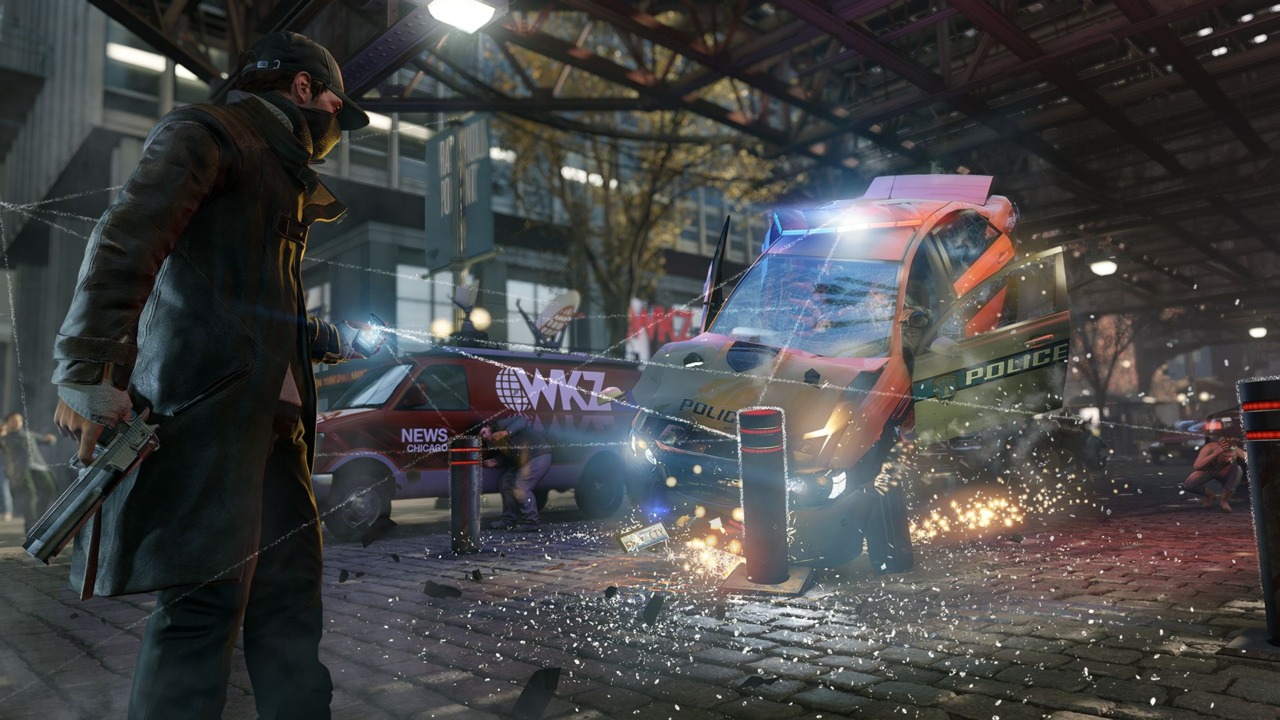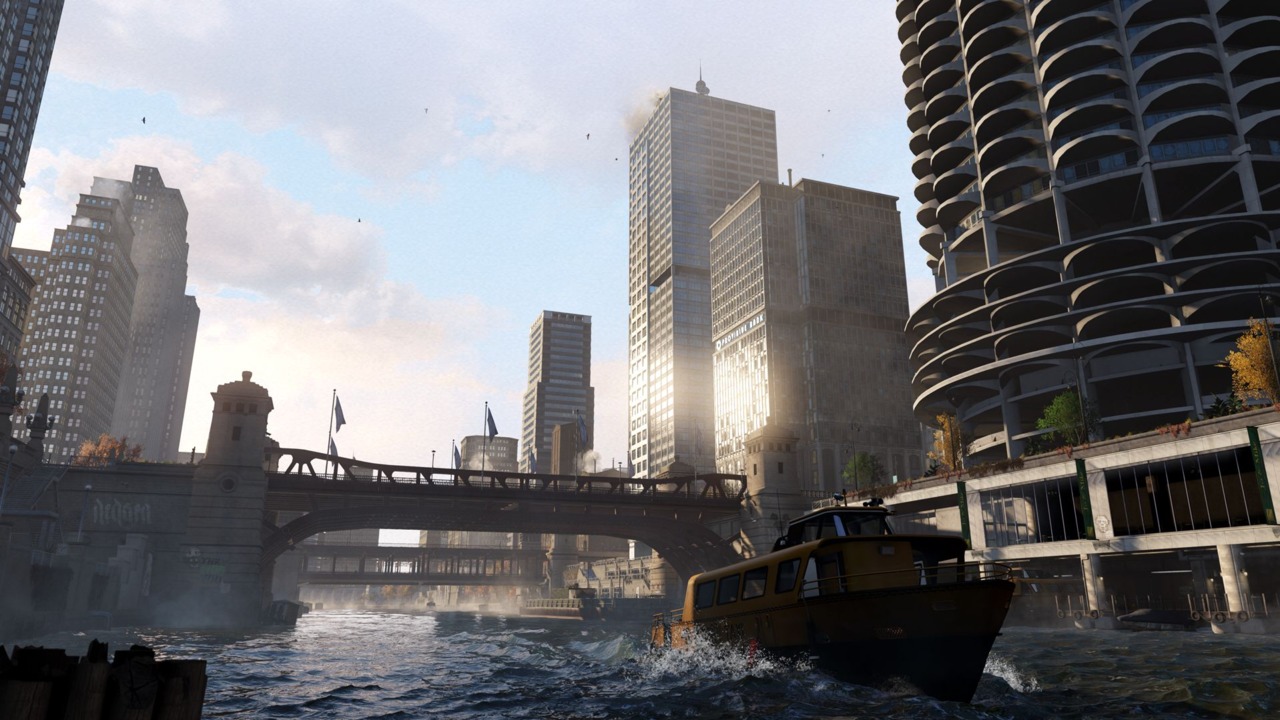City in a Bottle: Designing the Story of Watch Dogs
Jonathan Morin of Ubisoft Montreal discusses how Watch Dogs will balance a cohesive narrative with the chaotic structure of an open-world video game.
Facebook. Twitter. YouTube. These technologies and others have made it possible for humans to connect to each other with incredible ease. But where will this growing need for constant connectivity take us in the next 20 years, and what lasting impact will it have on our society? Jonathan Morin, creative director at Ubisoft Montreal, doesn't have all the answers--but he knows the question. And it's a question he and his team are inviting players to reflect upon in their upcoming open-world action game, Watch Dogs.
Another Crab's Treasure Is A Soulslike 3D Platformer | GameSpot Review Stellar Blade Review Super Monkey Ball Banana Rumble - Official Multiplayer Features Trailer Nintendo 64 – April 2024 Game Updates – Nintendo Switch Online PUBG | Erangel Classic Returns Gori: Cuddly Carnage | Meow Launch Date Announcement Trailer Genshin Impact - "Arlecchino: Afterglow of Calamity" | Collected Miscellany Marvel Rivals - Official Loki Character Reveal Trailer | The King of Yggsgard Fortnite Festival - Official Billie Eilish Cinematic Season 3 Trailer Remnant 2 - The Forgotten Kingdom | DLC Launch Trailer Stellar Blade - Official "The Journey: Part 2" Behind The Scenes Trailer | PS5 Games Dead by Daylight | Tome 19: Splendor | Reveal Trailer
Please enter your date of birth to view this video
By clicking 'enter', you agree to GameSpot's
Terms of Use and Privacy Policy
Watch Dogs' vision of an always-on society draws heavily from issues we're addressing today, but the structure supporting this tale is much older. "When I started this project, I reminded myself of the games I enjoyed as a kid and realized I really miss the 8-bit character," Morin said. "When I was young and playing Final Fantasy, I saw those little drawings on the screen and was able to convince myself they were badass knights--that was my own interpretation of those tiny sprites."
"I've always felt technology isn't the problem; it's how humans use and interact with it that becomes an interesting subject to talk about. Most often [new technology] brings side effects people just didn't expect."
As years passed and games replaced those simple sprites with 3D models, Morin found himself disappointed when his imagination didn't align with what was onscreen. Games were no longer just showing; they were telling. Does this mean Watch Dogs will make a surprise shift to an abstract, 8-bit art style? Not likely. However, this idea of interpretation--of inviting players to think about and question what's happening--left a strong impression on Morin and shaped the fundamental way his team approaches storytelling.
"I don't want to force any message on the players," he said. "Instead, I want players to discover the message for themselves. What's important is that narrative, gameplay, and our world all reinforce this message. Without sounding too pretentious [laughs], I see Watch Dogs as a painting: it's a centerpiece of work, built in such a way that everyone has their own interpretation. It then invites players to reflect on [those interpretations] as they explore and interact with the world."

Aiden Pearce, the game's protagonist, is one example of interpretative design. "We paid a lot of attention to how we designed Aiden's motivations, versus the tools you have to interact with your surroundings," said Morin, acknowledging that players can, technically, go on a shooting spree at any moment. "For us, Aiden is, say, 80 percent predefined, and the other 20 percent is how the player's actions shape him. Instead of overly describing how Aiden is supposed to act, we're using the world to react to what the player does in interesting ways."
"Instead of having a good-or-bad system, we're going more into a gray area talking about media and communications. The media will talk about what they think of Aiden Pearce, and as the player, you will feel a disruption between your motivations for what you've done, versus what people, and the media, believe they saw--which is a reflection of what the media can cause due to a lack of information. And this is just one example; we're making sure every system screams back at the player how he plays, without being judgmental."
Condemnation is not Morin's goal. Regardless of how you play Pearce, what's important is that you're making decisions and dealing with the consequences. "This feeling of being lost between [Pearce]'s problems and society's problems--which is the typical tragedy of a vigilante--is something the player will feel as they play. As you get more powerful, you're enticed to seek out more side-mission content; you're going to have these temptations to help others or otherwise intervene in situations that have nothing to do with Pearce in the first place. Will you intervene, or not? Will you pull the trigger, or not? And who are you to make these sorts of decisions? Those are the types of issues players could experience, should they seek them out."

When the credits roll, Morin hopes players will discover that their decisions--good, bad, and otherwise--form a mosaic that says: this is our world; what do you think? "Watch Dogs is about human beings and their relationship with technology. It's not judging either directly, but instead gives tools to the player so they can reach their own conclusions. We're going to talk equally about the positive and negative aspects of technology to help the player bring their own reflection of what's going on."
"Not everything you do connects back to a single story. I don't think it's a good idea to make an entire city about a single story; we want to make sure it feels broader than that so that it's something we can continue exploring for a long time."
Asking players to take a more tempered, introspective approach to Watch Dogs is a tall order considering they can go and do what they please. Restricting the player is not the answer. Instead, the key is offering context. "One of the first things we decided after starting Watch Dogs was: if you're walking around a city, draw a gun, and start shooting bullets in the air--that's a big deal! It's a significant event that people will be talking about, the media will be talking about, and people will be scared. In short, gunfights in the middle of a city are a pretty serious event."
As seen in the game's extended trailer, firefights, chase scenes, and other exciting set pieces won't be uncommon in Watch Dogs. However, Morin feels he can't ask players to take his world seriously if he doesn't bring some gravity to all the violence. "In the end, we [want] to make sure the repercussions of your actions are always present, but at the same time we don't want to frustrate players by putting them in an environment that isn't fun and isn't interesting to interact with." Using the in-game media to comment on your actions is one solution, but striking the perfect balance remains an ongoing challenge for the development team.

Since the game's announcement, Watch Dogs has drawn comparisons to Ridley Scott's Blade Runner, the cyberpunk genre, and more. While Morin and his team enjoy reading their fans' reactions and interpretations, they have always strived for just one thing with Watch Dogs: believability. "In the end, what we're presenting is today's life, with a bit of an extrapolation on top of that. One of the big things we've been careful about is making sure the fantasy we sell and show in our game is at the heart of the gameplay experience and reflected in the progression of the world."
Got a news tip or want to contact us directly? Email news@gamespot.com
Join the conversation